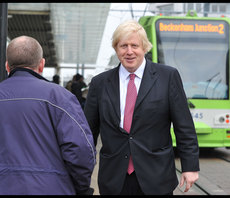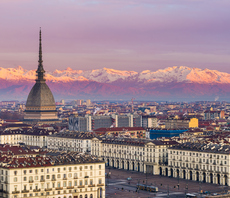Failing to arrive: Labour slams government’s green bus progress


Opposition party warns government is yet to deliver on its promise from early 2020 to deliver 4,000 zero emission buses across the UK
Labour has launched a blistering attack on the government’s green public transport agenda, accusing Ministers of “failing millions of passengers” around the country as it revealed that none of the 4,000 zero emission buses the Ministers announced more than a year ago are yet to materalise.
Ahead of a visit to an electric bus depot owned by Go-Ahead in Waterloo, shadow minister for green transport Kerry McCarthy said the government was yet to deliver any of the fleet of zero emission buses it announced in February 2020.
“While we’re still waiting for the promised 4,000 zero emission buses, cuts to bus services and rising ticket costs will push more people into using more polluting forms of transport,” she said.
She argued the situation was “just the latest in a long line of examples of the government talking a good game, yet failing to deliver”.
Labour also accused the government of downgrading its expectations for how many zero emission buses it plans to finance through an initial £120m funding pot unveiled in March, highlighting that the 500 figure touted in the funding announcement was a significantly lower than the 800 cited by the Transport Minister in a parliamentary debate just two weeks earlier.
In a statement, the opposition claimed the ongoing decarbonisation of London’s bus fleet provided evidence of Labour’s leadership on green transport under Mayor Sadiq Khan. While 44 per cent of the capital’s buses are now electric or hybrid models, 95 per cent of buses in the rest of England are still run on diesel, according to government statistics statistics.
McCarthy said GoAhead’s electric bus depot in Waterloo was “an example of the efficient and clean transport infrastructure we need to see across the country, and another transport success story under a Labour Mayor”.
“Labour is delivering cleaner, cheaper and better transport networks up and down the country, but the government is still failing millions of passengers nationally,” she added.
Bus use has been falling in the UK since the 1950s and the network has been badly hit by a decade of austerity measures, with the Campaign for Greater Transport calculating that more than 3,000 services across England alone have been reduced or removed since 2010 as local authorities’ bus budgets were cut by 45 per cent.
All the while, car ownership has increased, and private cars now produce more carbon dioxide emissions annually than the entire UK power sector.
Enhancing and decarbonising public transport is a key element of the government’s 10 Point Plan for a Green Industrial Revolution, and in March it announced £3bn for a host of measures designed to boost bus travel and reduce car use in England as part of the UK’s first National Bus Strategy.
A spokesperson from the Department for Transport countered that 50 zero emission buses had been put on the roads since February last year.
“We’re committed to introducing 4,000 zero emission buses and achieving an all zero emission bus fleet. Since February last year, we’ve made funding available for up to 900 zero emission buses, with over 50 of these already on the roads,” they said. “As set out in our Bus Back Better strategy, we will provide £120m to support 500 zero emission buses between now and March 2022.
“This is on top of £50m given for the first All-Electric Bus Town for the West Midlands Combined Authority, for up to 300 zero emission buses, and over 100 zero emission buses supported by previous green bus funding schemes.”
Labour’s attack comes in the same week as a new analysis from progressive think tank IPPR highlighted the need for the government’s Transport Decarbonisation Plan – a policy document that is expected to emerge in the coming weeks following a series of delays – to drive a reduction in levels of road transport, warning that the UK’s current approach to delivering net zero emissions through an accelerated roll out of electric vehicles could lead to a 28 per cent increase in overall car ownership, an 11 per cent rise in car traffic, and yet more land and street space being monopolised by car parking.
The analysis, published this morning, warns that improving people’s quality of life cannot be delivered through “a shift to electric vehicles alone” and argues that the drive to net zero is a “once-in-a-generation opportunity to improve the way we all travel”.
As such, IPPR has set out a number of ways the government can cut overall car use and boost the nation’s appetite for public transport alternatives, starting with a seven days a week public transport connectivity guarantee for all rural areas and a £6m investment package in public transport and town centres designed to ensure all citizens’ everyday needs are accessible within a 20 minute walk, cycle, or public transport trip.








